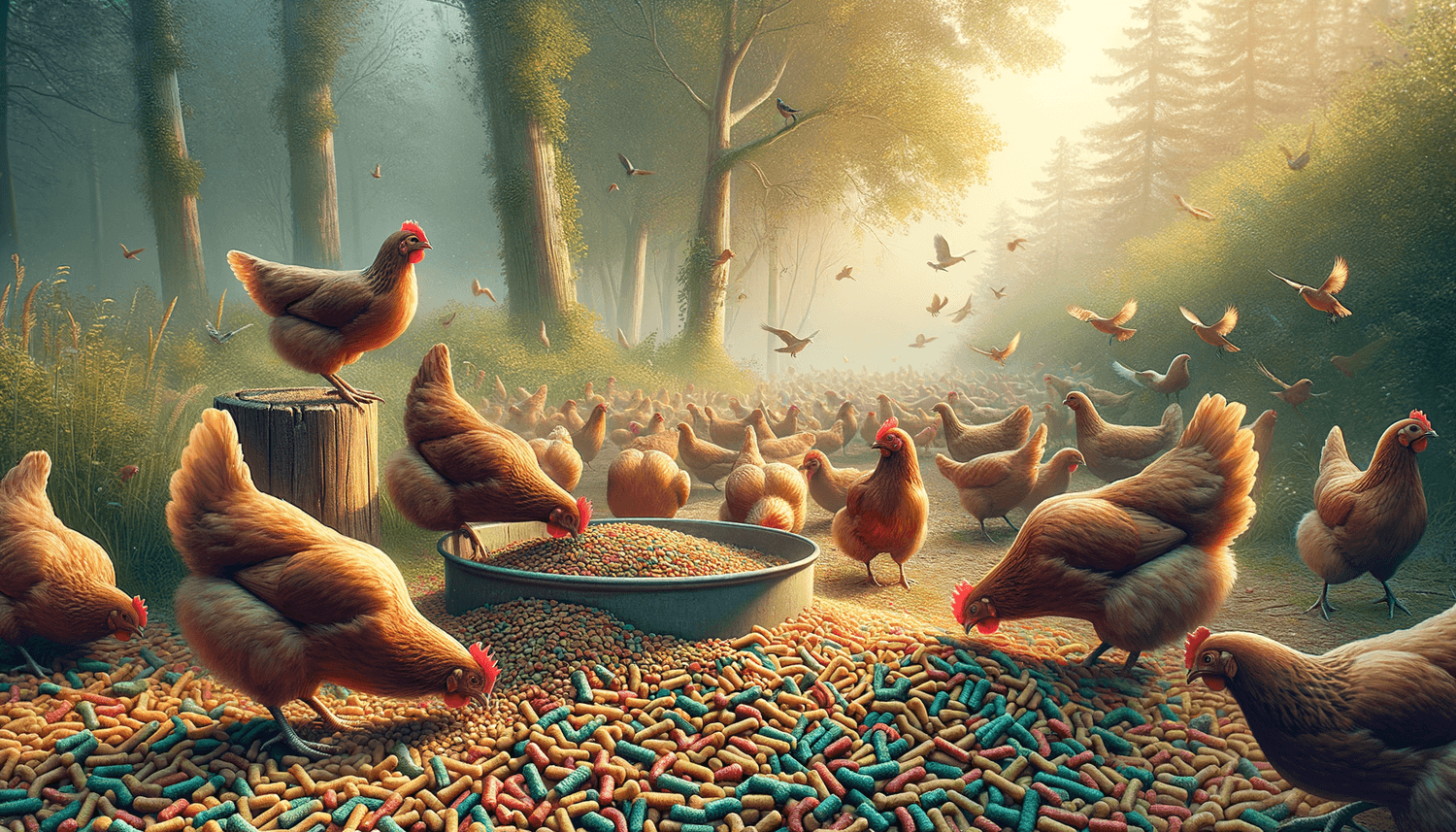If the feathery residents of your backyard have been watching their wild bird buddies nibbling on some scrumptious wild bird food with beady-eyed envy, you might have wondered: can chickens join in on the feast? In this fun, cluck-tastic blog post, we’re going to scratch beneath the surface of this tasty topic, discussing whether or not our gallant egg-layers can safely enjoy wild bird food, the importance of a balanced diet, potential benefits and risks, nutritional value, and how to meticulously prepare these tempting treats for chickens. So, fluff up your plumage and let’s get pecking at the facts!
Can chickens eat wild bird food?
Yes, chickens can eat wild bird food, but with some precautions. While it’s generally safe for them to nibble on, it’s important to ensure that their diet remains well-balanced, as wild bird food alone doesn’t provide all the nutrients chickens need. Moreover, be cautious of additives or preservatives in some wild bird foods, as they may be harmful to your backyard flock.
Chickens need a balanced diet, too!
Just like us humans, chickens thrive when they have a well-balanced diet, helping them stay robust and sprightly. A chicken’s diet, in particular, should be predominantly composed of high-quality chicken feed. This essential component ensures they receive the necessary vitamins, minerals, and nutrients to remain healthy and productive, making up about 80-90% of their diet.
As for the remaining 10-20%, you can treat your feathered pals with a delightful blend of fruits, vegetables, and occasional special treats! This not only keeps their meals exciting, but also supplements their primary chicken feed with additional nutrients. Remember, moderation and variety are key players in maintaining a balanced and delicious diet for your clucky companions.
Nutritional value of wild bird food for chickens.
Feeding wild bird food to chickens does provide some nutritional value. Wild bird food typically contains grains, seeds, and sometimes dried insects, all of which can contribute to a chicken’s health. For instance, protein present in these foods – especially in dried insects like mealworms – can be beneficial for your chickens’ growth, feather development, and egg production.
Many wild bird food mixes also consist of seeds that are rich in fats and oils, such as sunflower seeds and millet. These ingredients can supply your chickens with energy, which is essential for maintaining their body temperature, especially during colder months. Additionally, some wild bird foods may contain mixed nuts, which are known for their healthy fats and antioxidant properties, further contributing to a chicken’s well-being.
While wild bird food offers some nutritional benefits, it’s important to note that it’s not specifically formulated for chickens. Therefore, it lacks the specific mix of vitamins and minerals found in high-quality chicken feed. So, while it’s safe and somewhat nutritious for chickens to eat wild bird food, it should not replace their main diet, and it is best offered as an occasional treat combined with other supplementary sources like fruits and vegetables.
Nutrition table of wild bird food for chickens.
| Information | Description |
|---|---|
| Nutritional Value | Provides proteins, fats, and oils essential for growth, feather development, and energy. Not specifically formulated for chickens. |
| Suggested Serving Size | Offer as an occasional treat, not exceeding 10-20% of the total diet. |
| Safe Feeding Practices | Ensure wild bird food is free from additives and preservatives, and is offered in moderation to maintain a balanced diet. |
| Preparation | No specific preparation required. Can be scattered or placed in a separate feeder. |
| Potential Risks | Additives or preservatives in some wild bird foods may be harmful. Overconsumption might lead to an unbalanced diet. |
| Hydration | Ensure chickens have access to clean, fresh water, as wild bird food does not provide hydration. |
| Digestion | Chickens can typically digest wild bird food with no issues, but ensure they have access to grit for proper digestion. |
| Seasonal Availability | Wild bird food is widely available year-round in stores or online. |
| Other Benefits | Can be a source of antioxidants from nuts and other ingredients, as well as a source of hydration when moist fruits and vegetables are included. |
Various types of wild bird food
When offering wild bird food to your chickens, it’s essential to understand that there are various types available, each with different ingredients and nutritional benefits. Some of the most common types include mixed seeds, seed blends, and dried insects. Mixed seed options like sunflower seeds, millet, and cracked corn can be a good source of energy, while dried insects such as mealworms offer a protein boost. Take note of the ingredients when choosing wild bird food to provide a variety of nutrients to your flock.
Introducing new foods gradually
When introducing wild bird food or any new treat to your chickens, be sure to do so gradually, giving them time to adjust to the new flavor and texture. Offer small amounts initially to gauge their interest and to avoid sudden changes in their diet that might cause digestive upsets or other health issues.
Monitor your chickens’ health
As a responsible chicken keeper, it’s essential to keep an eye on your flock’s health and any changes in behavior when introducing new foods. If you notice any signs of discomfort, illness, or lethargy after feeding wild bird food, consult with a veterinarian to address any potential health concerns. Staying attentive will ensure a happy and healthy experience for both you and your chickens.
Encourage natural foraging behavior
By offering wild bird food or other treats, you’re not only providing supplementary nutrients to your chickens’ diet but also encouraging their natural foraging behavior, which can keep them engaged and happy. Scattering wild bird food around their run or using a separate feeder can promote this behavior, keeping your flock content and entertained.

















